Welcome! AsianBondsOnline is a one-stop source of information on bond markets in emerging East Asia.
Publications
Cross Border Settlement Infrastructure Forum (CSIF)
As of May 2025, the original four CSIF Briefs have been reissued as Asian Bond Markets Initiative (ABMI) Briefs to better reflect that CSIF activities support the ABMI mandate to develop the ASEAN+3 local currency bond markets.
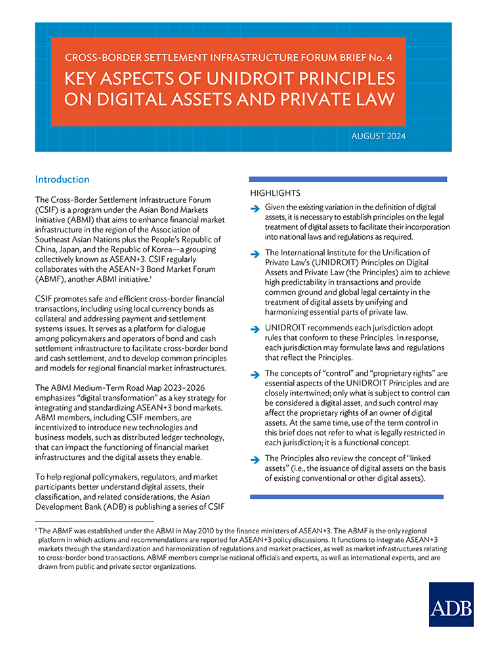
The Cross-Border Settlement Infrastructure Forum Brief No. 4: Key Aspects of UNIDROIT Principles on Digital Assets and Private Law
*reissued as ABMI Brief No. 8
This CSIF Brief shows that the International Institute for the Unification of Private Law’s (UNIDROIT) Principles on Digital Assets and Private Law (the Principles) aim to achieve high predictability in transactions and provide common ground and global legal certainty in the treatment of digital assets by unifying and harmonizing essential parts of private law. UNIDROIT recommends each jurisdiction adopt rules that conform to these Principles. In response, each jurisdiction may formulate laws and regulations that reflect the Principles.
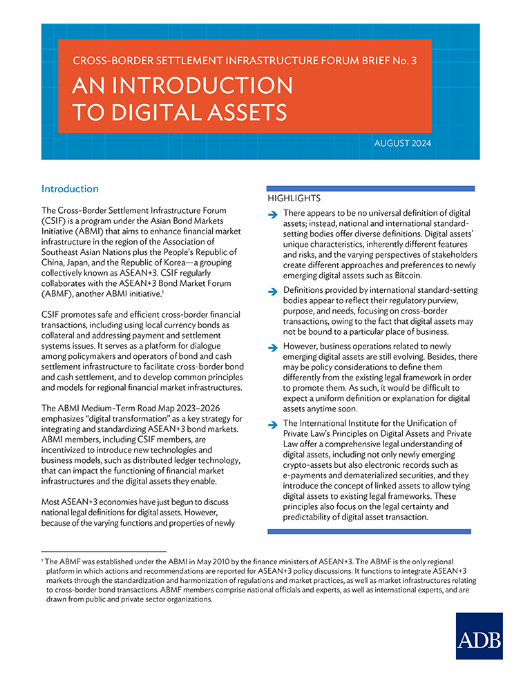
The Cross-Border Settlement Infrastructure Forum Brief No. 3: An Introduction to Digital Assets
*reissued as ABMI Brief No. 7
This CSIF brief explains the challenge to uniformly define fast-emerging digital assets, shows how it risks sparking legal conflicts, and underscores the need to develop common principles to support growing cross-border transactions.
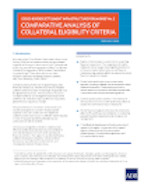
The Cross-Border Settlement Infrastructure Forum Brief No. 2: Comparative Analysis of Collateral Eligibility Criteria
*reissued as ABMI Brief No. 6
This brief examines the development of local currency (LCY) bond markets in ASEAN+3 economies and considers how setting out sound collateral eligibility criteria can bolster their development and increase financial stability.
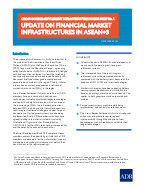
The Cross-Border Settlement Infrastructure Forum Brief No. 1: Update on Financial Market Infrastructures in ASEAN+3
*reissued as ABMI Brief No. 4
This brief assesses the development of payment and settlement market infrastructure in ASEAN+3 economies, tracks the evolution of real-time gross settlement systems, and looks at the potential of rapid digitalization.
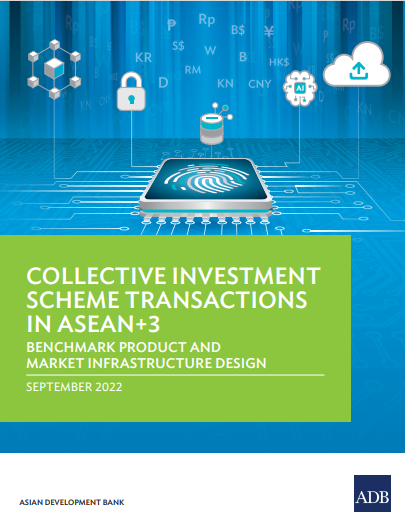
Collective Investment Scheme Transactions in ASEAN+3: Benchmark Product and Market Infrastructure Design
This report explores how the central securities depository and real-time gross settlement (CSD-RTGS) linkage model could be applied to collective investment scheme (CIS) passporting frameworks in Asia to enhance post-trade efficiency. In Asia, there are a number of multilateral CIS passporting frameworks, but little attention has been given to how delivery versus payment settlements can be facilitated under such frameworks. The report finds that the CSD-RTGS linkage model has considerable potential to be applied in Asia as a settlement engine for other cross-border financial instruments. It outlines how this can be achieved by interlinking the region’s CIS central platforms and delivery versus payment settlements infrastructure under the CSD-RTGS model.
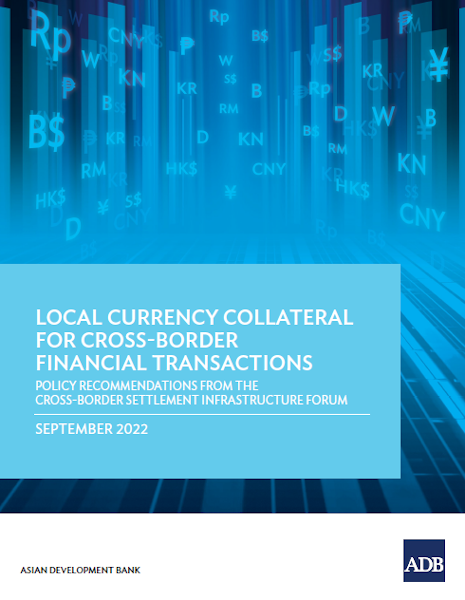
Local Currency Collateral for Cross-Border Financial Transactions: Policy Recommendations from the Cross-Border Settlement Infrastructure Forum
This report looks at how the use of local currency-denominated bonds for cross-border collateral transactions can be promoted in ASEAN+3 to develop regional bond markets. Active use of local currency-denominated bonds for cross-border collateral transactions can help by mitigating risks, reducing the credit costs of financial institutions, and expanding market liquidity. The report identifies the challenges faced by regional collateral markets and proposes seven policy recommendations for promoting the cross-border use of local currency bonds as collateral in the Association of Southeast Asian Nations plus the People’s Republic of China, Japan, and the Republic of Korea—known collectively as ASEAN+3.
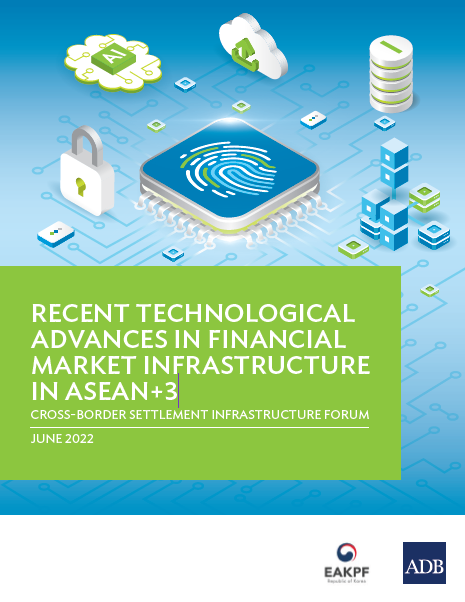
Recent Technological Advances in Financial Market Infrastructure in ASEAN+3: Cross-Border Settlement Infrastructure Forum
This report identifies and examines six key technologies that are transforming fundamental financial market infrastructure and will serve as a springboard for the technological advancement of financial market infrastructure in the region. The report ascertains the most current status of technology adoption by Cross-Border Settlement Infrastructure Forum member organizations. They include central securities depositories and central banks in the Association of Southeast Asian Nations (ASEAN) plus the People’s Republic of China, Japan, and the Republic of Korea (collectively known as ASEAN+3) region.
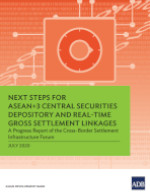
Next Steps for ASEAN+3 Central Securities Depository and Real-Time Gross Settlement Linkages: A Progress Report of the Cross-Border Settlement Infrastructure Forum
This report provides an update on progress toward the establishment of a regional settlement intermediary to support investment and more integrated bond markets among ASEAN+3 economies. The proposed intermediary is to be based on bilateral links between national central securities depositories and central banks’ real-time gross settlement systems. This model can realize cross-border delivery versus payment settlement to enable safe and efficient cross-border financial transactions. The report also highlights emerging trends and challenges in cross-border financial transactions and sets out the next steps in establishing a regional settlement intermediary.
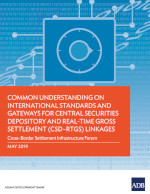
Common Understanding on International Standards and Gateways for Central Securities Depository and Real-Time Gross Settlement (CSD–RTGS) Linkages
This publication provides an overview of central securities depository and real-time gross settlement linkages in the ASEAN+3 region. It was prepared for the Cross-Border Settlement Infrastructure Forum (CSIF) to support its efforts to establish central securities depository and real-time gross settlement linkages. It aims to build a common understanding among CSIF members about international standards and gateways for these linkages, including user requirements and technical specifications. The publication reflects the collaborative efforts currently underway to further harmonize and integrate bond markets among the ASEAN+3 economies.
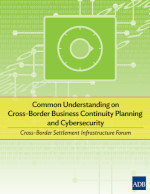
Common Understanding on Cross-Border Business Continuity Planning and Cybersecurity
The Cross-Border Settlement Infrastructure Forum (CSIF), a forum under Task Force 4 of the Asian Bond Markets Initiative published the Common Understanding on Cross-Border Business Continuity Planning (BCP) and Cybersecurity during the 21st ASEAN+31Finance Ministers and Central Bank Governors meeting in Manila, the Philippines. The objective of the publication is to create basic common understandings among CSIF members. The finance ministers and central bank governors were pleased with the publication and noted that the issues of BCP and cybersecurity are essential for creating safe linkages among Central Securities Depository–Real Time Gross Settlement (CSD-RTGS) systems to ensure the resilience of increasingly interconnected financial systems.
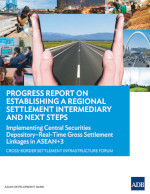
Progress Report on Establishing a Regional Settlement Intermediary and Next Steps: Implementing Central Securities Depository–Real-Time Gross Settlement Linkages in ASEAN+3
The progress report is an important step for the establishment of Central Securities Depository–Real-Time Gross Settlement (CSD–RTGS) Linkages as a regional settlement intermediary in the region. Developed by the Cross-Border Settlement Infrastructure Forum (CSIF), composed of the central banks and central securities depositories in the Association of Southeast Asian Nations (ASEAN) and the People’s Republic of China, Japan, and the Republic of Korea—collectively known as ASEAN+3—the report shows the desktop study results between the Bank of Japan and the Hong Kong Monetary Authority aiming to create a common model for the linkages. The report also sets out the implementation road map for the establishment of CSD–RTGS Linkages. As secretariat of the CSIF, the Asian Development Bank supports this initiative.
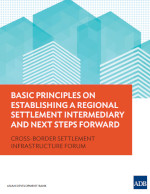
Basic Principles on Establishing a Regional Settlement Intermediary and Next Steps Forward: Cross-Border Settlement Infrastructure Forum
This report summarizes the discussions among ASEAN+3 central bank and central securities depository officers at the Cross-border Settlement Infrastructure Forum held in Delhi in May 2013. The ASEAN+3 finance ministers and central bank governors endorsed the establishment of the CSIF under the Asian Bond Markets Initiative to facilitate discussions on the improvement of cross-border bond and cash settlement infrastructures in the region, including the possibility of establishing a regional settlement intermediary. This report shows the three regional settlement intermediary models analyzed by the CSIF members and suggests the next steps moving forward.
